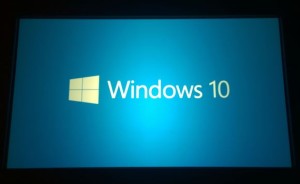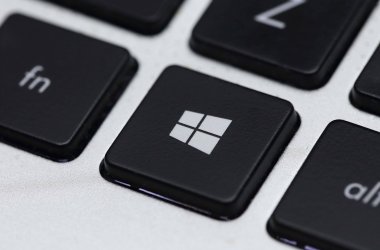 It has been 25 years since the potential market failure of a Microsoft operating system carried serious consequences outside the corporation’s own campus.
It has been 25 years since the potential market failure of a Microsoft operating system carried serious consequences outside the corporation’s own campus. Today, the word “dominance” doesn’t really apply to Windows, and especially not to Microsoft.
Opposite poles
Windows 8 was a spectacular flop, sunk to a large degree by the start screen. If Windows 10 performs no better, there are two views of the consequences. One is that the Windows platform is now vulnerable to obsolescence. So, like a prime minister facing a multiparty no-confidence vote, a Windows 10 failure would force Microsoft to make an airtight case for why a Windows operating system must continue to be produced.
Yes, Windows versions have failed before, without Taps being played or world economies crumbling. It’s not because Windows hasn’t mattered that much. As with mediocre leadership or poor cable service, people will put up with what they have in the absence of a better alternative. But if Windows 10 doesn’t catch on, device makers may move away from PCs altogether. The products they make, using other native OSes or even virtual desktops, may look less and less like laptops and not much different from tablets.
Some analysts have an alternative view: It’s Windows 7, not 8, that has the lion’s share of the operating system’s installed base. If Windows 10 performs no better than Windows 8 in the consumer, small business, and enterprise markets, Windows 7 will simply linger on.
“Windows 7 offers strong competition to any new desktop OS,” said Al Hilwa, IDC’s program director for software development research, in an email interview. “But as long the new environment is sufficiently familiar to both users and developers, the replacement rate for PCs will ensure a continued switch, and some success.”
Nonetheless, these experts feel, the best thing Windows 10 has going for it right now is the lack of a viable alternative.
If Windows 10 were to become a market failure on the scale of Windows 8, would OEMs and device makers abandon the Windows platform outright? And then would users and businesses follow? “I think the scenario you’re painting is an unrealistic one, and unlikely to pan out in practice,” said Jan Dawson, chief analyst with Jackdaw Research.
“There’s really nothing else obvious out there. Chrome OS is really the one mainstream alternative that’s gaining some traction, but it’s largely been in the education market. It has some serious shortcomings for anybody that spends any time on their PC away from home, because of its dependence on constant connectivity for most of its functions to work. It won’t run many of the applications that people want to run on such a device.”
And while consumers may look more and more to Macs, keep in mind that no OEM will ever produce one.
A dearth of alternatives
“If Microsoft were teleported to another planet tomorrow, it would still take a long time for Windows to disappear,” stated Ross Rubin, principal analyst with Reticle Research.
“There are Chromebooks at the low end and Macs at the high end, but [Windows] still has very high share in the meat of the PC market,” Rubin continued. “Android might step in, but Google would have to loosen the reins on it in laptop form factors.”
In a follow-up phone discussion, Rubin expanded on this point. Chromebook may yet make a rejuvenated play for the middle of the market from the low end, and MacBooks from the high end, he said. But the users who constitute the majority of the market in between the two have built up high expectations for functionality and reliability that neither product may be able to meet.
“For many users, there is no ready alternative,” said Rubin. Google hasn’t shown the capability yet, he noted, to offer the services Windows users expect; and Apple hasn’t demonstrated any willingness to compete on cost, in what retailers call the “value” segment. “So you’ve got this huge swath in the laptop market between, say, $300 and $1,000, where… it’s Windows.”
Said Jackdaw’s Dawson, “Even though I think Chrome OS is the best runner-up, it’s not a super-attractive option for most of the OEMs out there. Most have dabbled with Chrome OS to some extent anyway, but I think they recognise it has somewhat niche appeal, unless something changes pretty dramatically there. Any Linux distribution seems to be a real long-shot, frankly. It means people learning a whole new way of working with the computer. And if they’re willing to do that, they may be willing to consider using a Mac.”
One of Windows’ greatest assets, the experts believe, has been its familiarity for users. Much of that familiarity is presented by its software base, and its resistance to the idea of change even in the presence of a compelling new form factor and runtime environment.
“Windows 8 created a discontinuity in the user experience that neither consumers nor enterprises were able to get past,” said IDC’s Hilwa. “People were upset that they have to learn new things; meanwhile there are alternatives in the form of cheaper, lighter, and more usable tablets. Microsoft underestimated the reaction to change, which is a bit befuddling. Tech firms in general, being pre-occupied with ‘disruption,’ seem to have a blind spot for the value of familiarity.”
“It is unlikely that Windows 10 will fail,” he declared, “as long as it provides people the ability to use the system in the same way they are familiar with.”
Making mobile, home
While PCs might linger on in some form, the failure of a cross-platform Windows 10 could mean Windows Phone joins the Newton and the TRS-80 Model 100 among the ranks of mobile relics. For that reason, among others, Jan Dawson believes next Wednesday’s Windows 10 rollout event in Redmond, Washington, expected to be geared toward consumers, will focus primarily on Windows Phone. Microsoft may have to make an extremely compelling case for Windows Phone 10, and do so immediately, for it to have any chance of success after its general release late this year.
But what constitutes “success” for Windows Phone 10? How much market share would it need to gain to remain a realistic player in small devices into 2016?
Even though Windows Phone 8.1 gave Microsoft a boost in phone sales, the company still lost market share, Dawson said.
“So the first job is to turn that shrinkage back into growth,” he said. “I don’t think Windows Phone becomes a really significant mobile operating system until it’s two or three times the size that it is now. I think if it were to double its installed base over the next year-and-a-half, that would be a massive achievement. But I think it’s actually a longer-term project to make it really relevant, and I’m still not convinced that Microsoft has the tools it needs to make that happen.”
Microsoft shouldn’t extend its vision for how Windows 10 functions too far into the phone, Rubin warned.
“History has shown us that people don’t want a traditional PC experience on their phone,” Rubin said. “That’s what Windows Mobile was all about. They don’t want it on their TVs; they want more of a leaned-back, video-centric experience.”
For too many users and probably more would-be users, Windows 8 is genuinely disliked. The last Microsoft OS to receive such disdain was MS-DOS 4.0.
In 1989, when Microsoft shifted its strategy from producing DOS and OS/2 to producing Windows 3.0, the company explained the reason for its shift as a result of listening to its customers, and recognising that the market had reached an inflection point. If Windows 10 fails to prove Microsoft has not only listened but contemplated what it heard, at the very least, it may find itself extending the support lifeline for Windows 7 while it watches the rest of the world move on.





